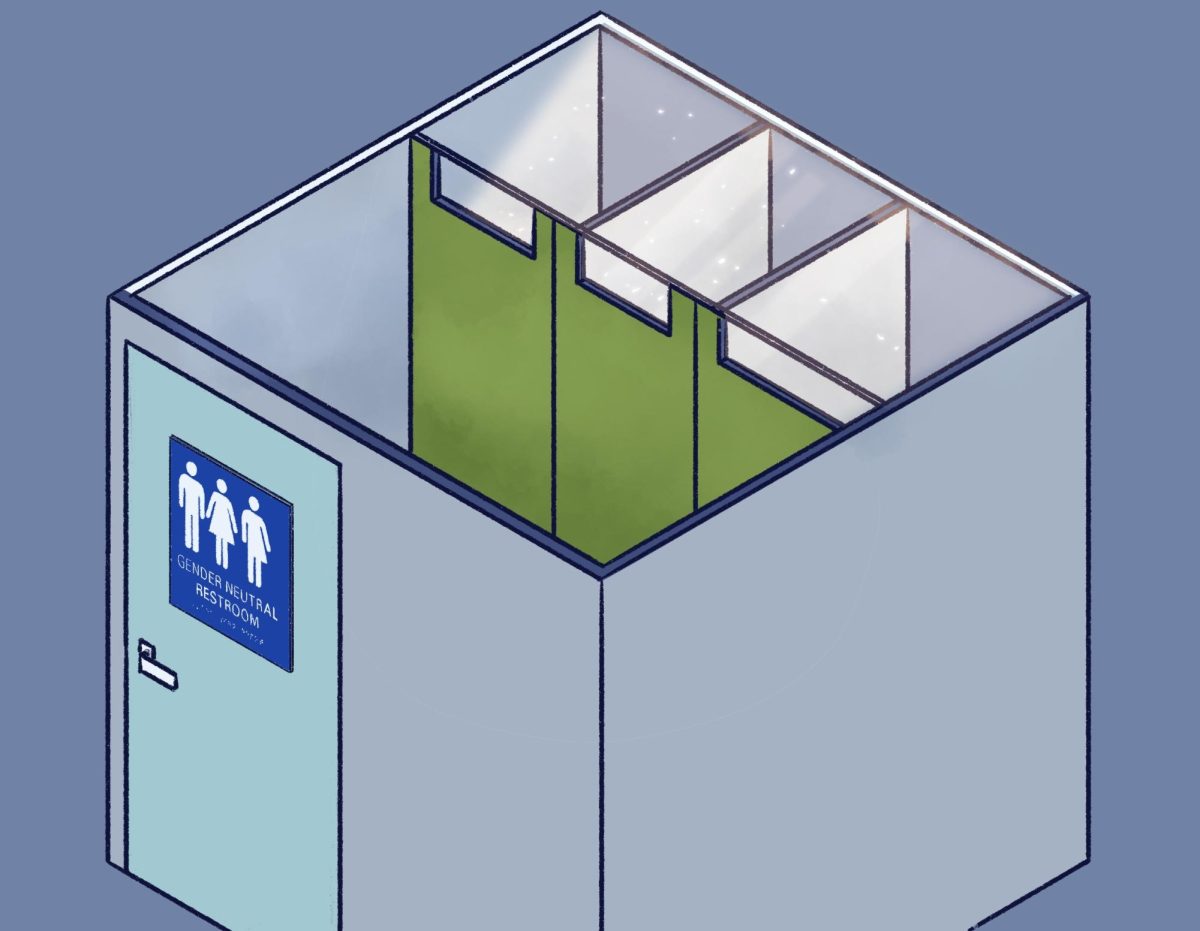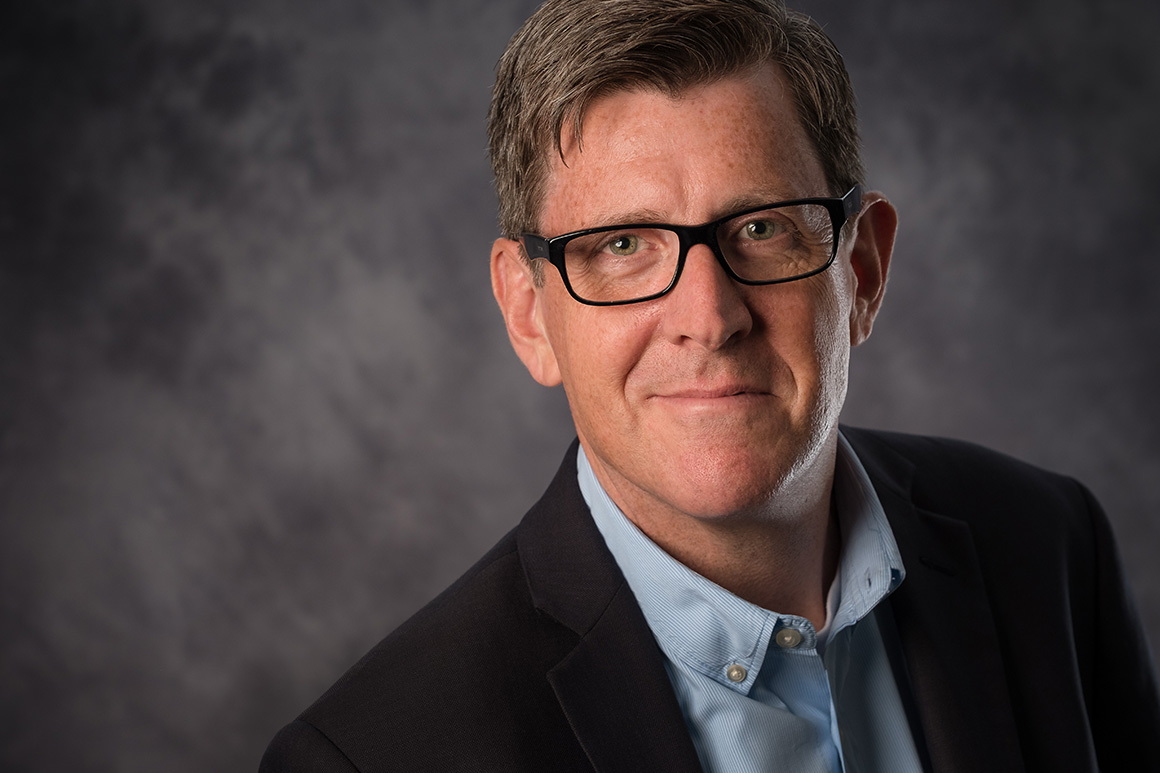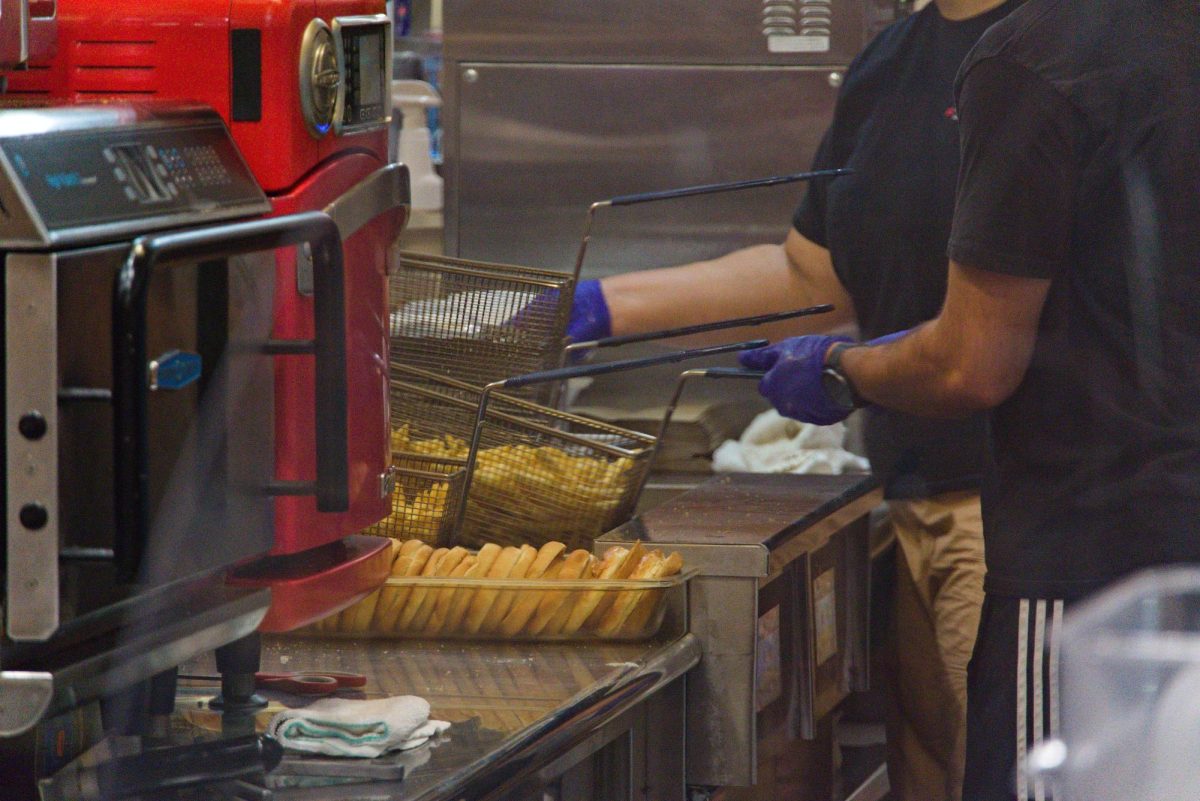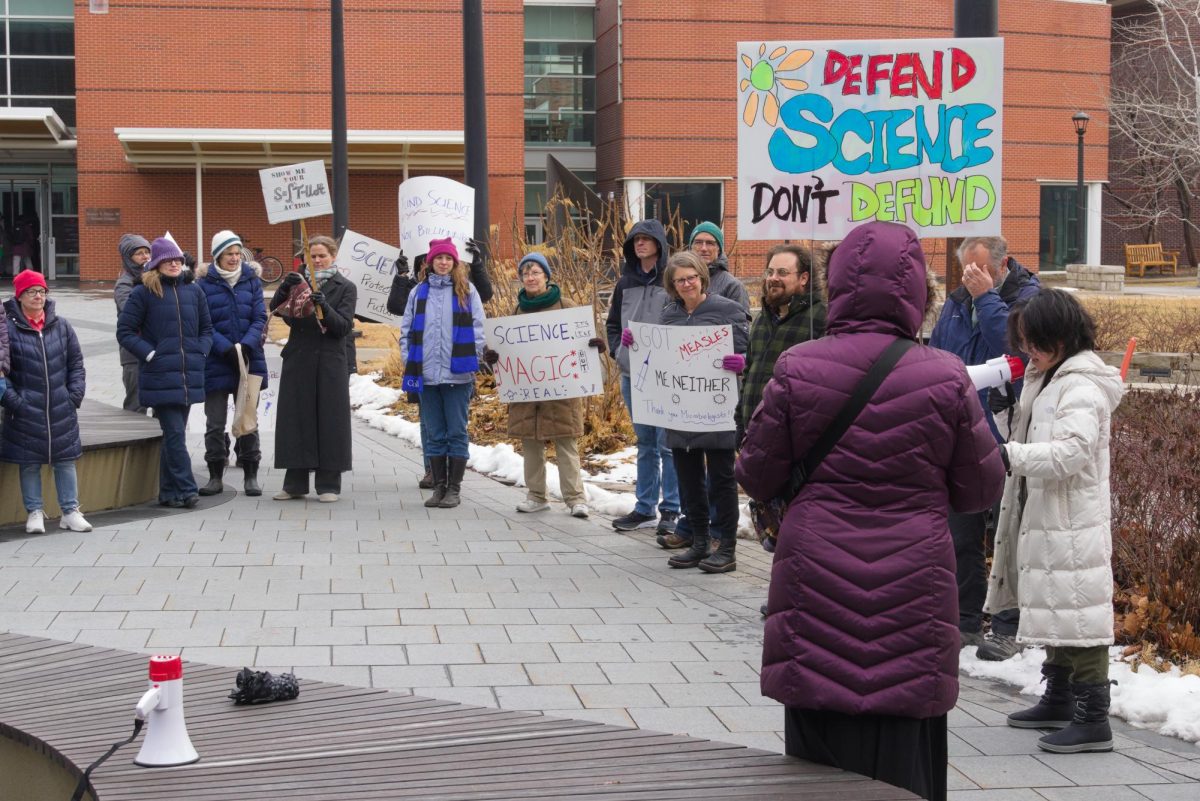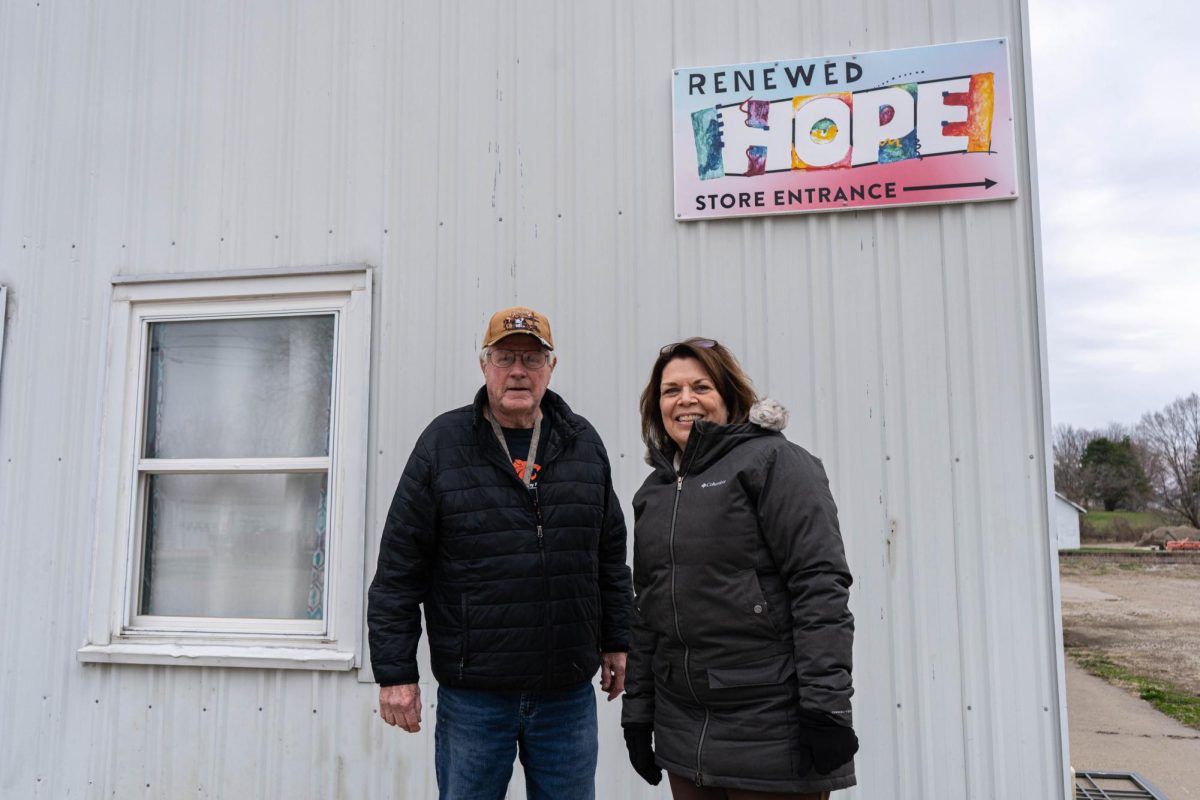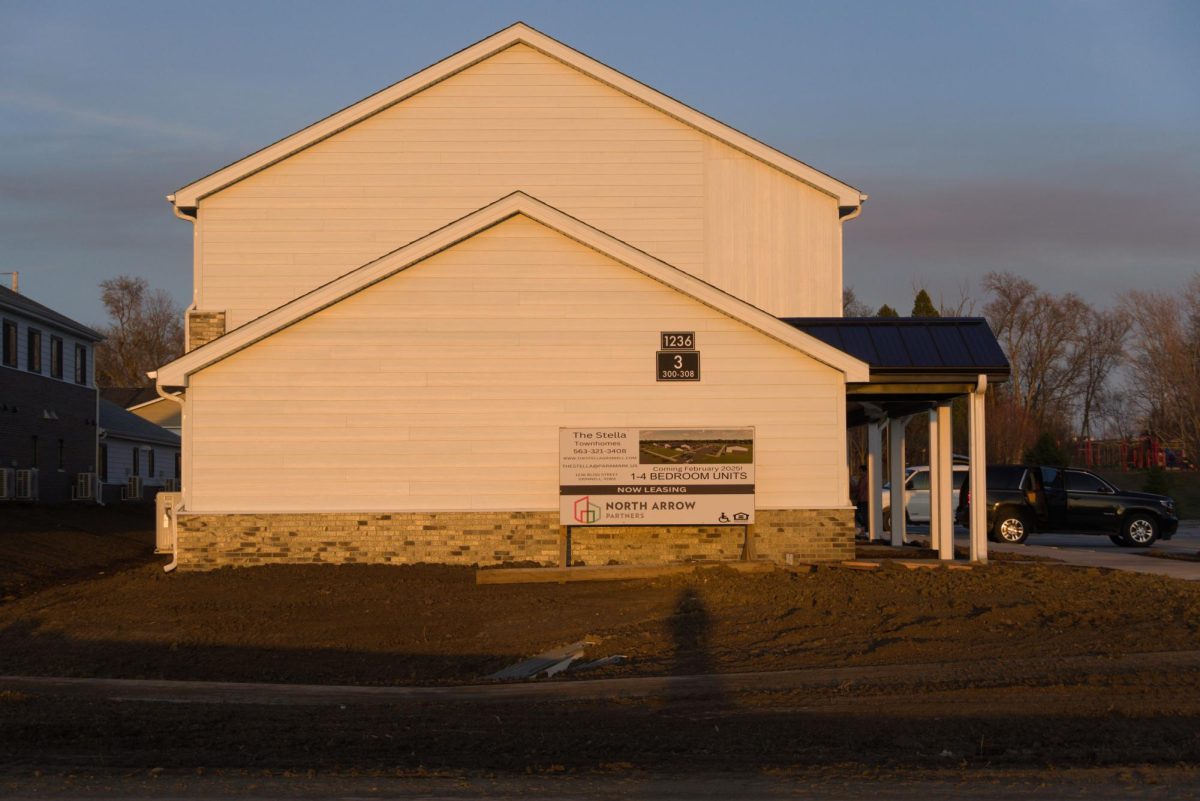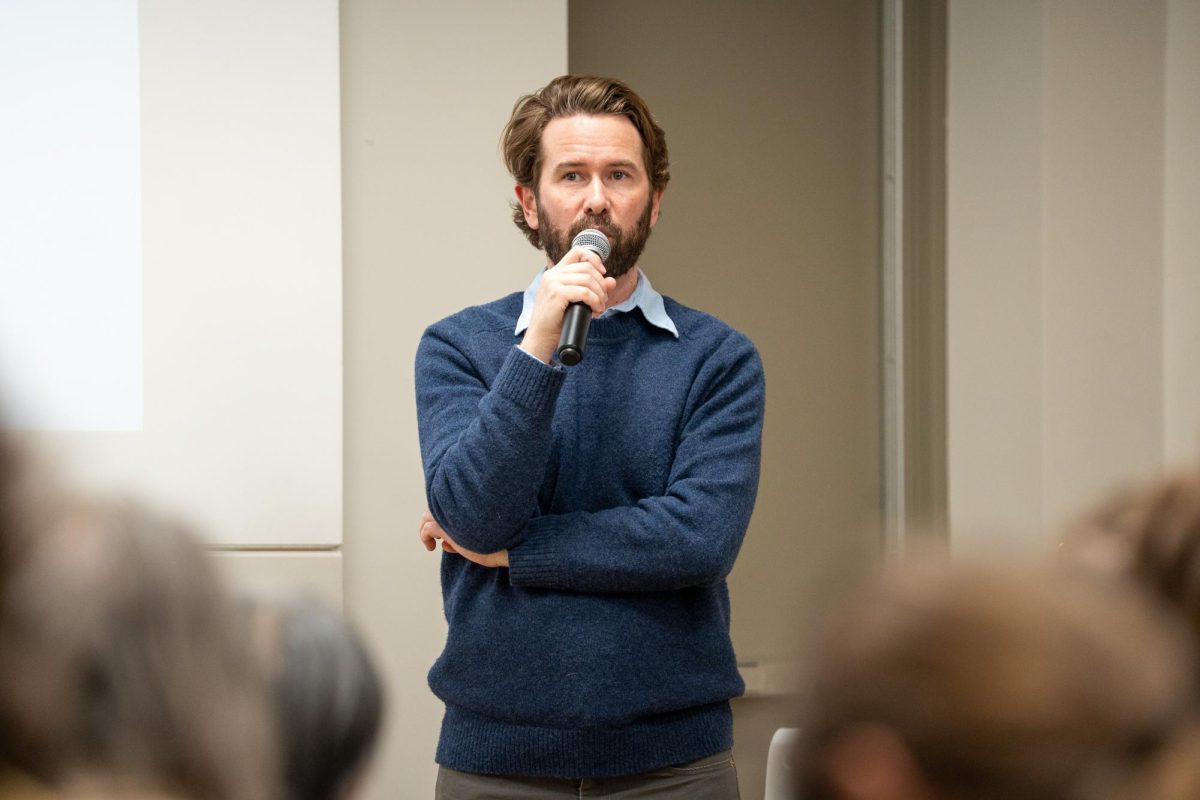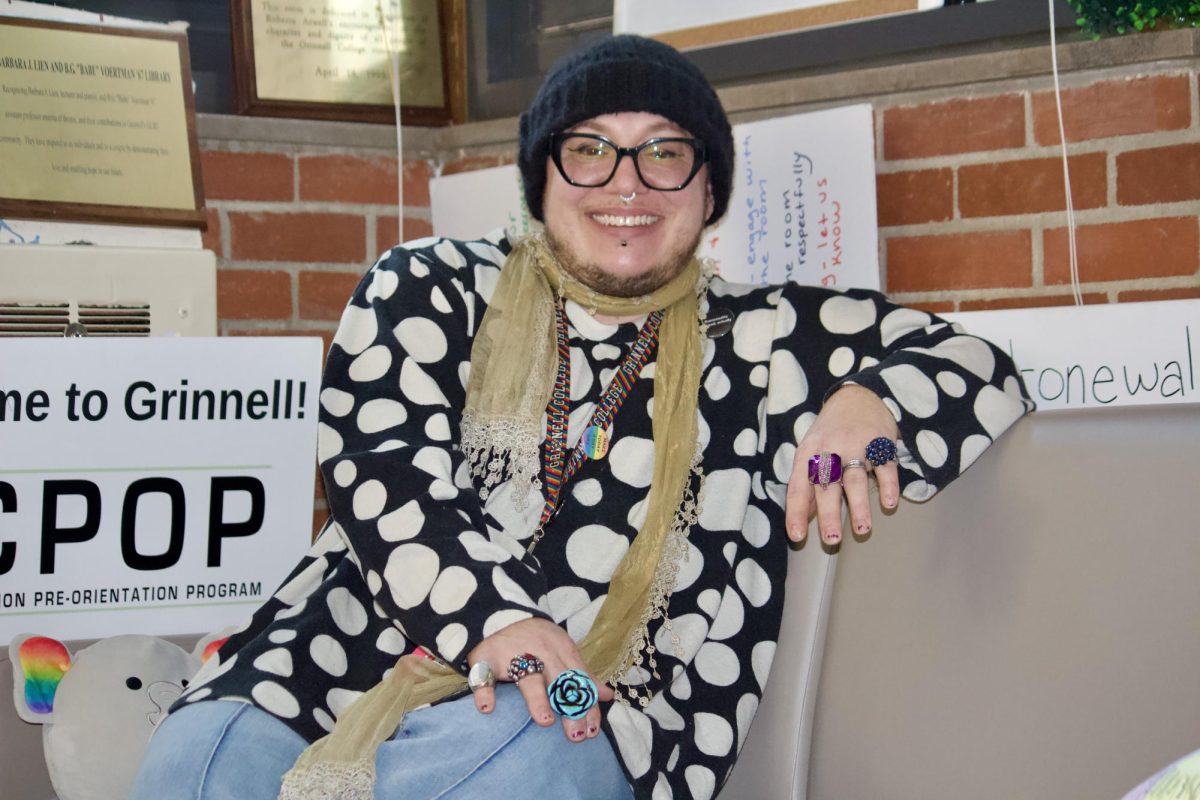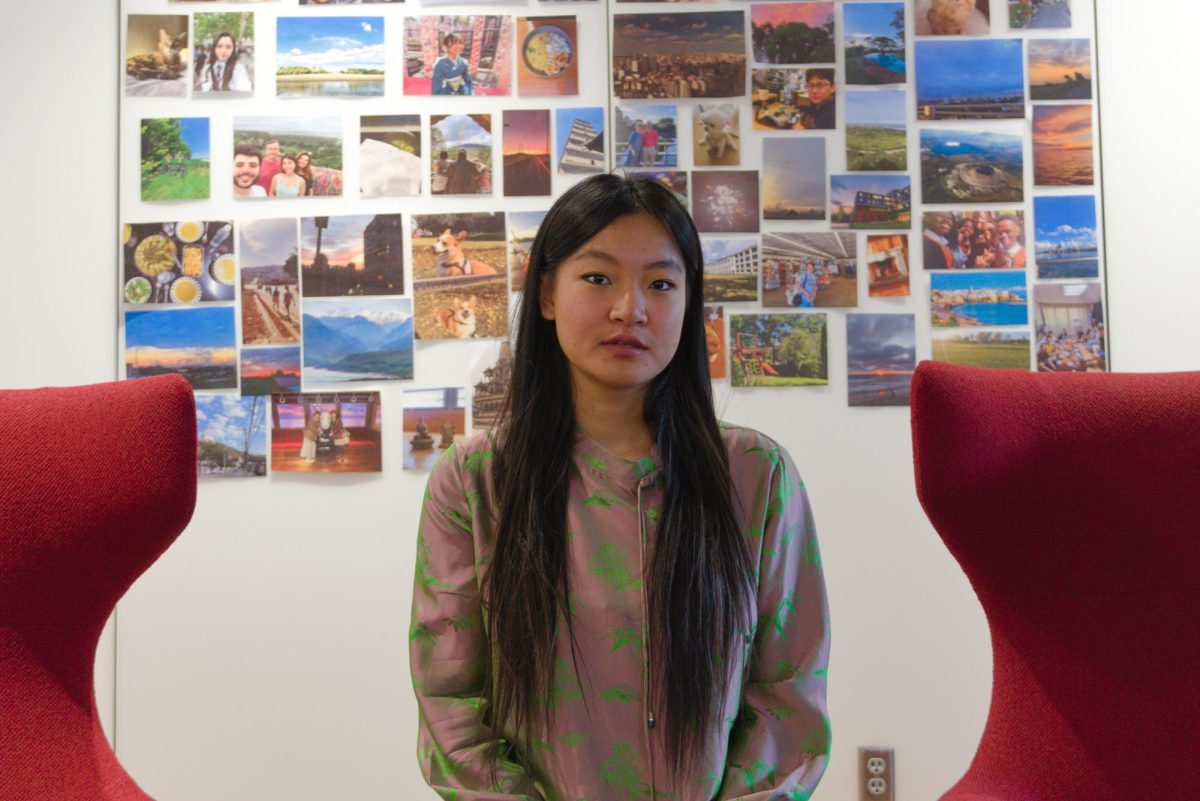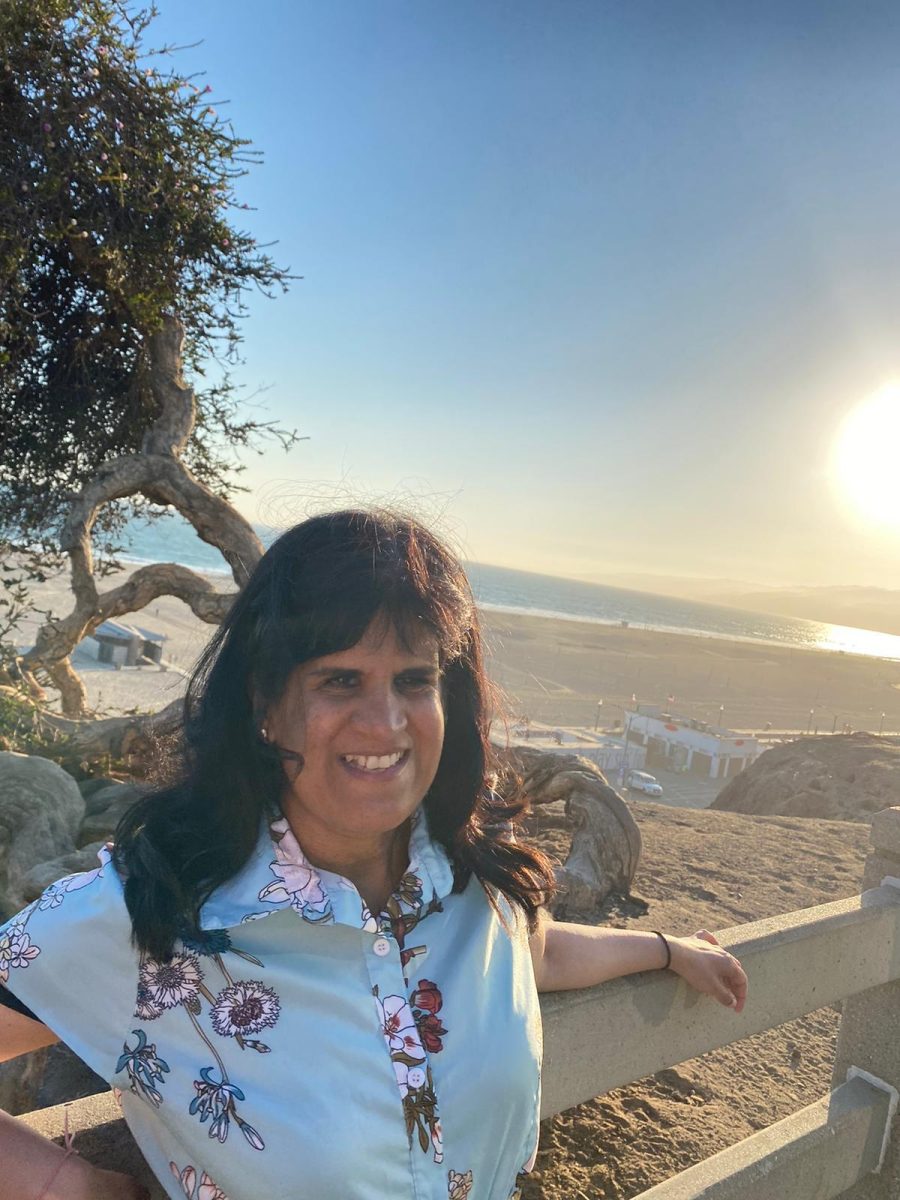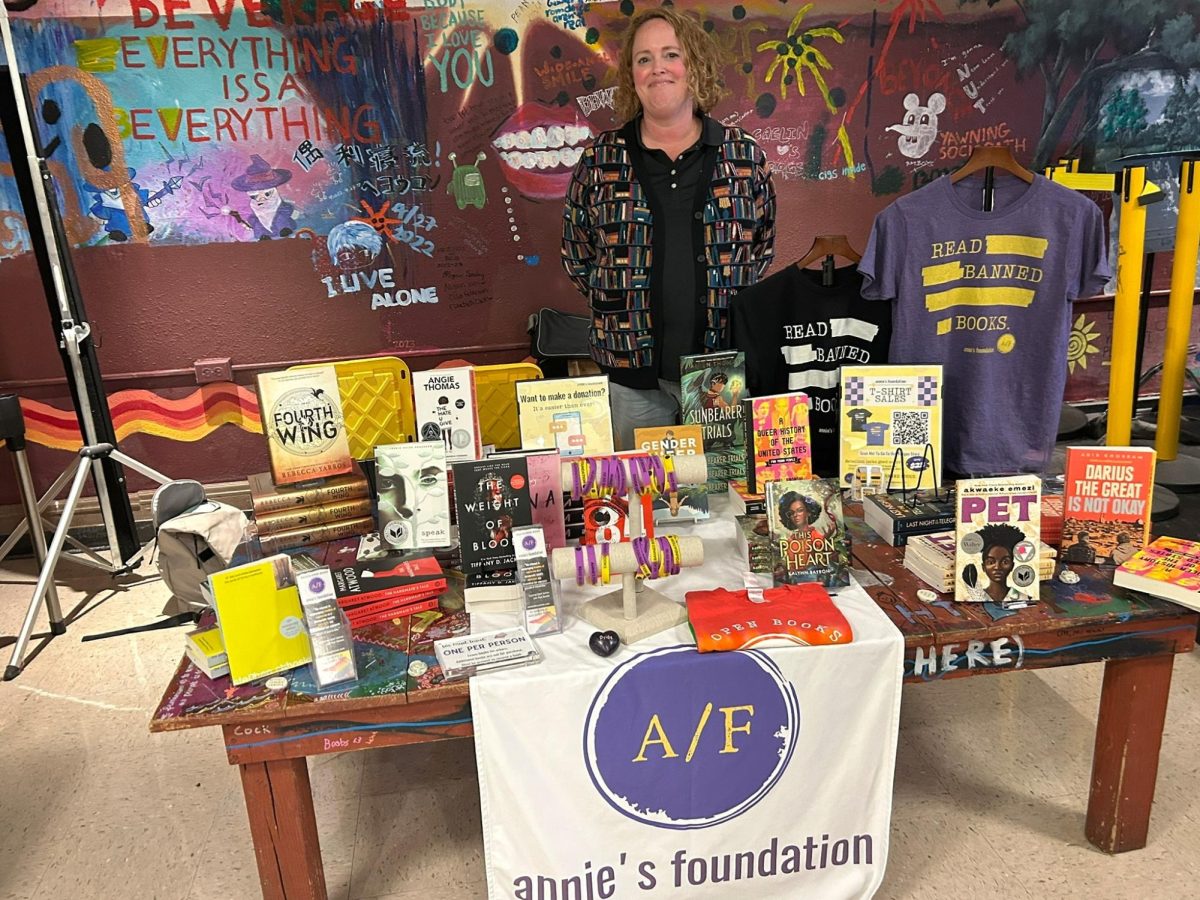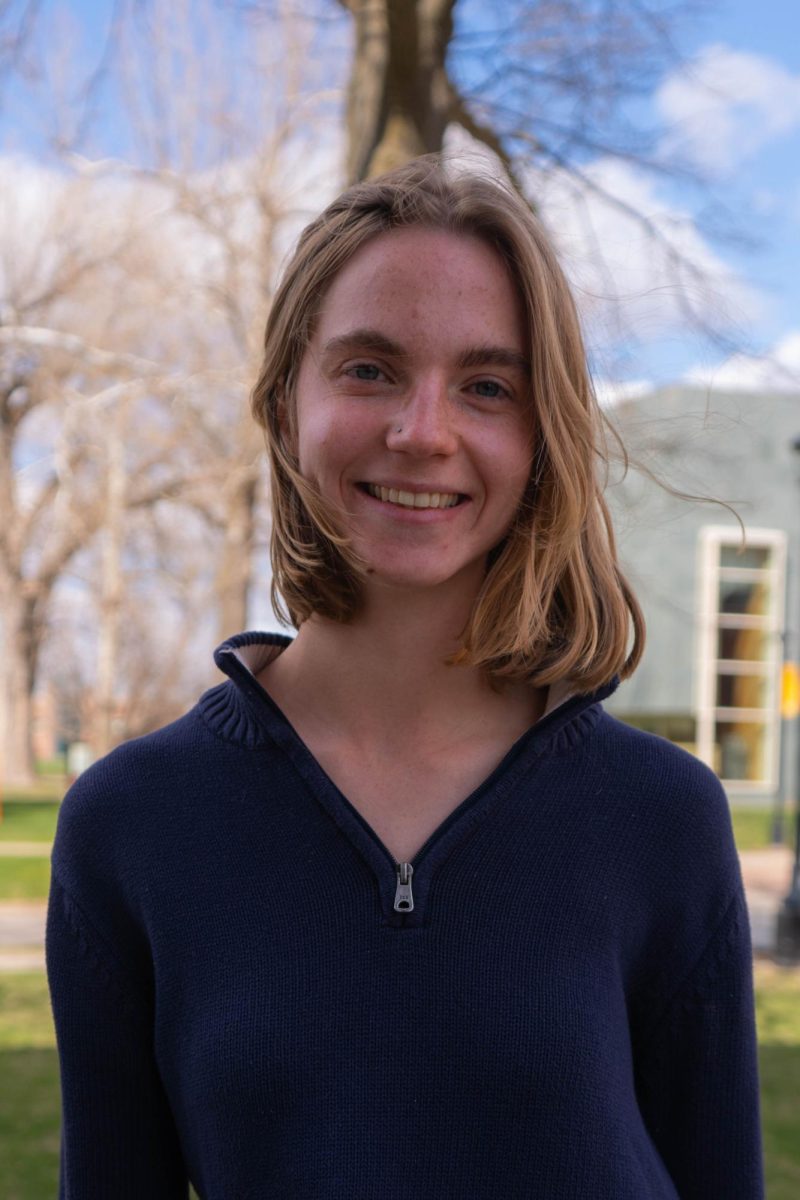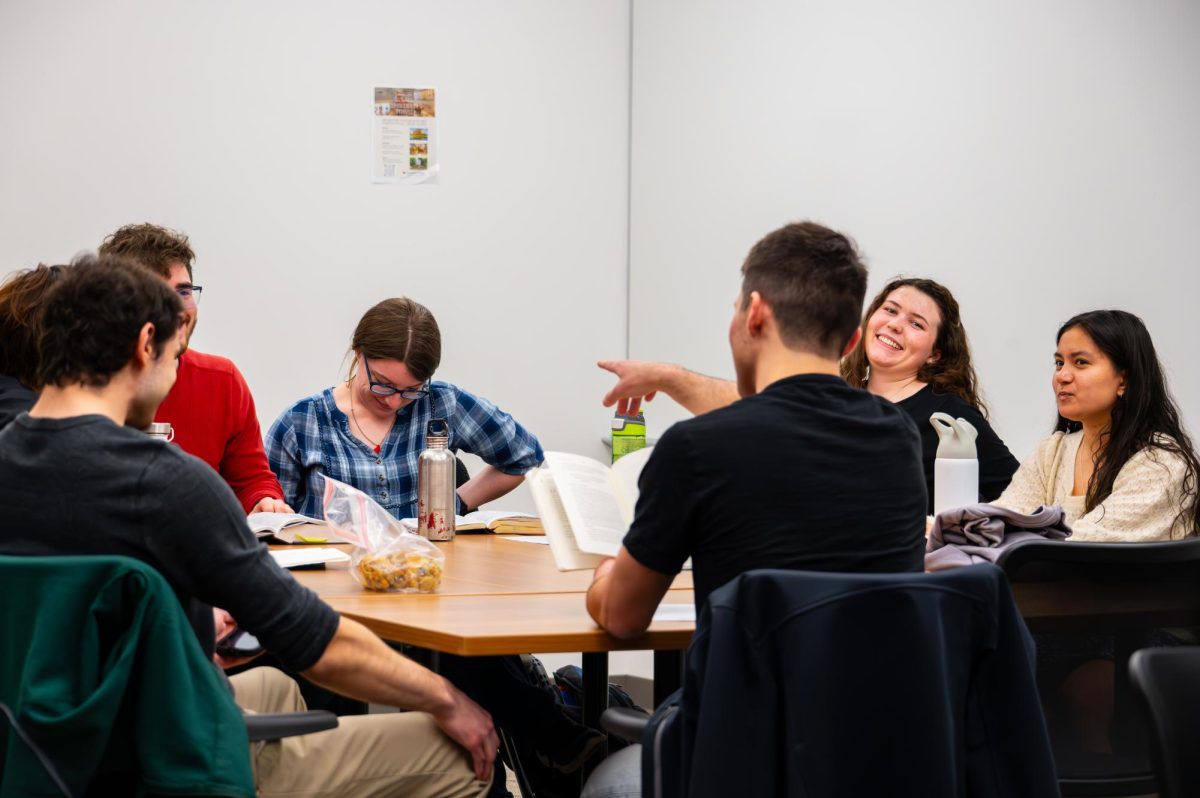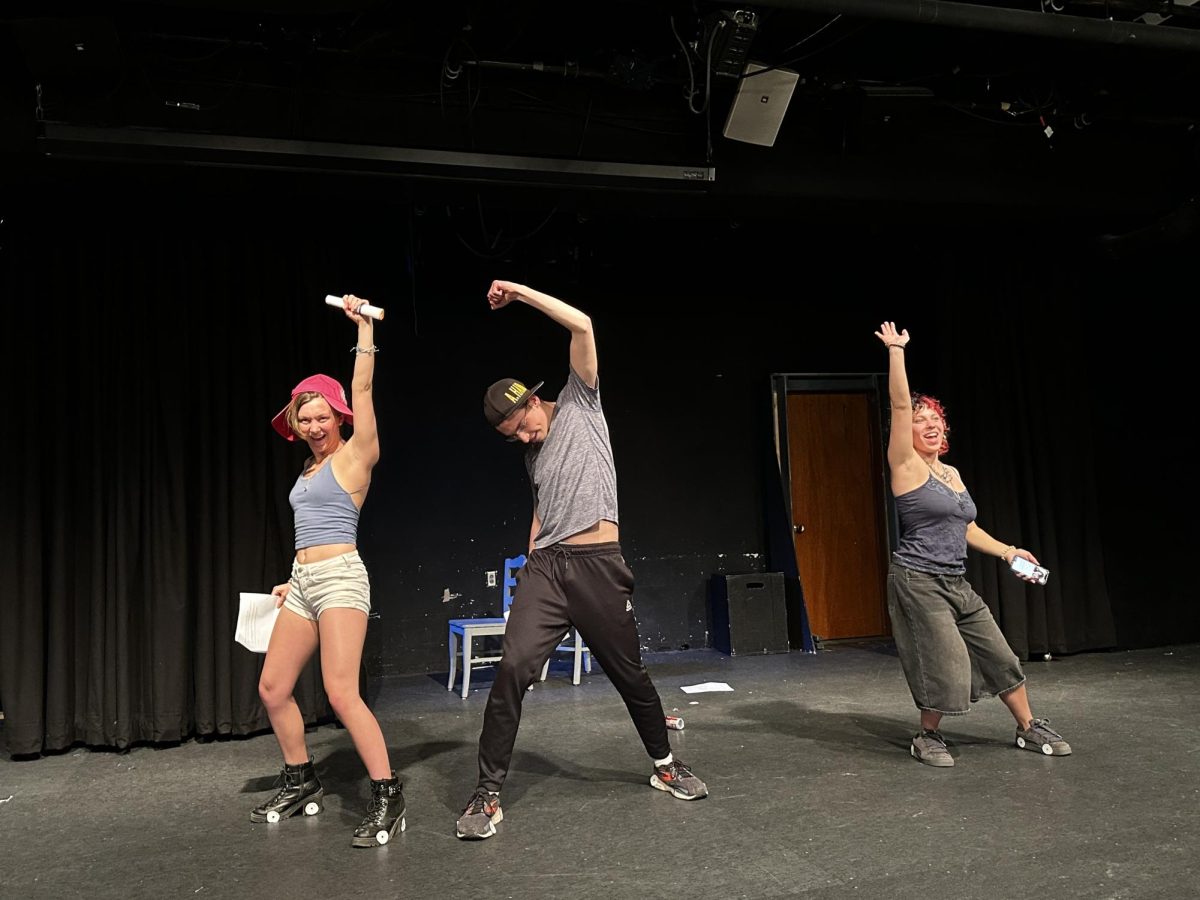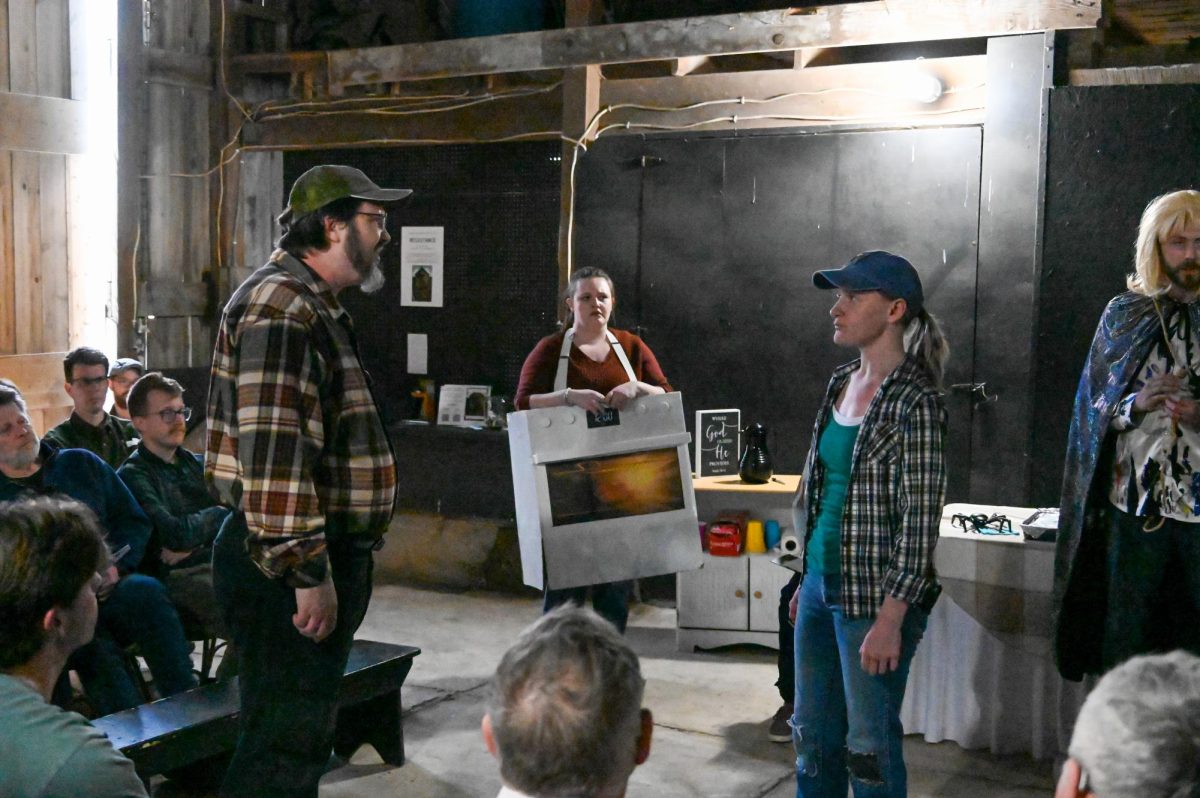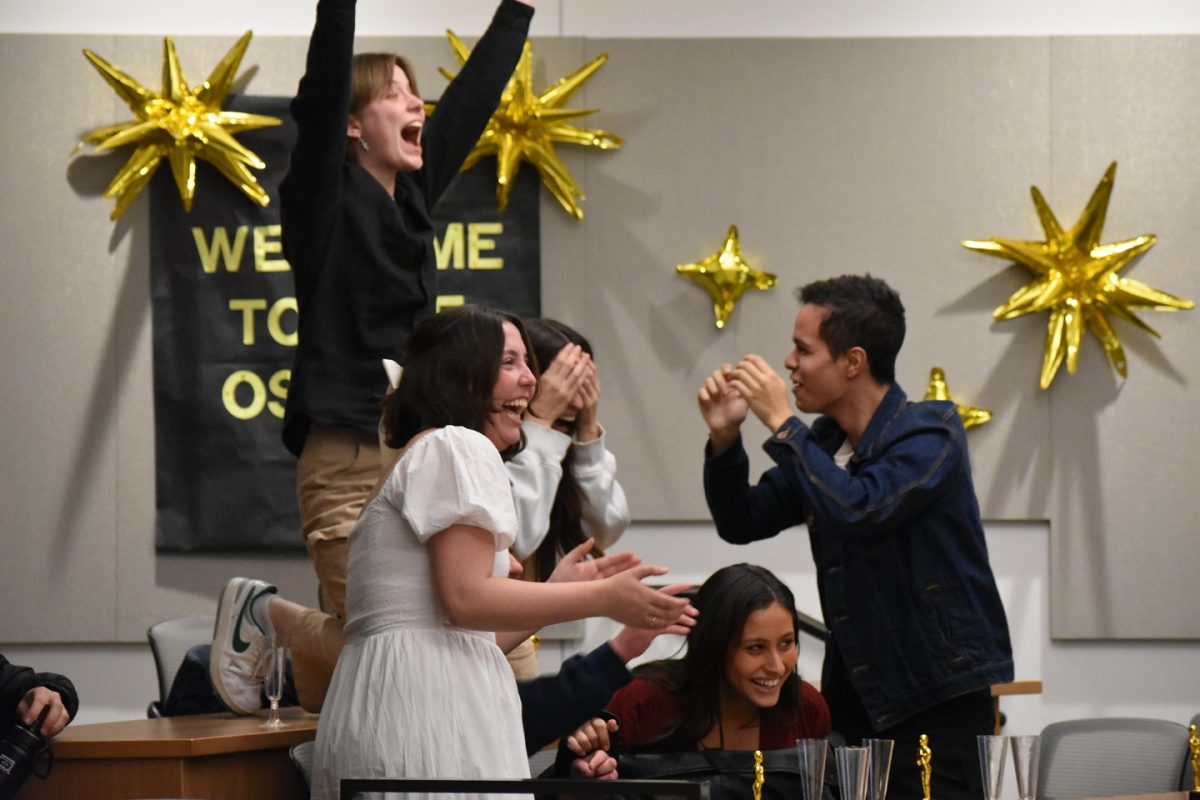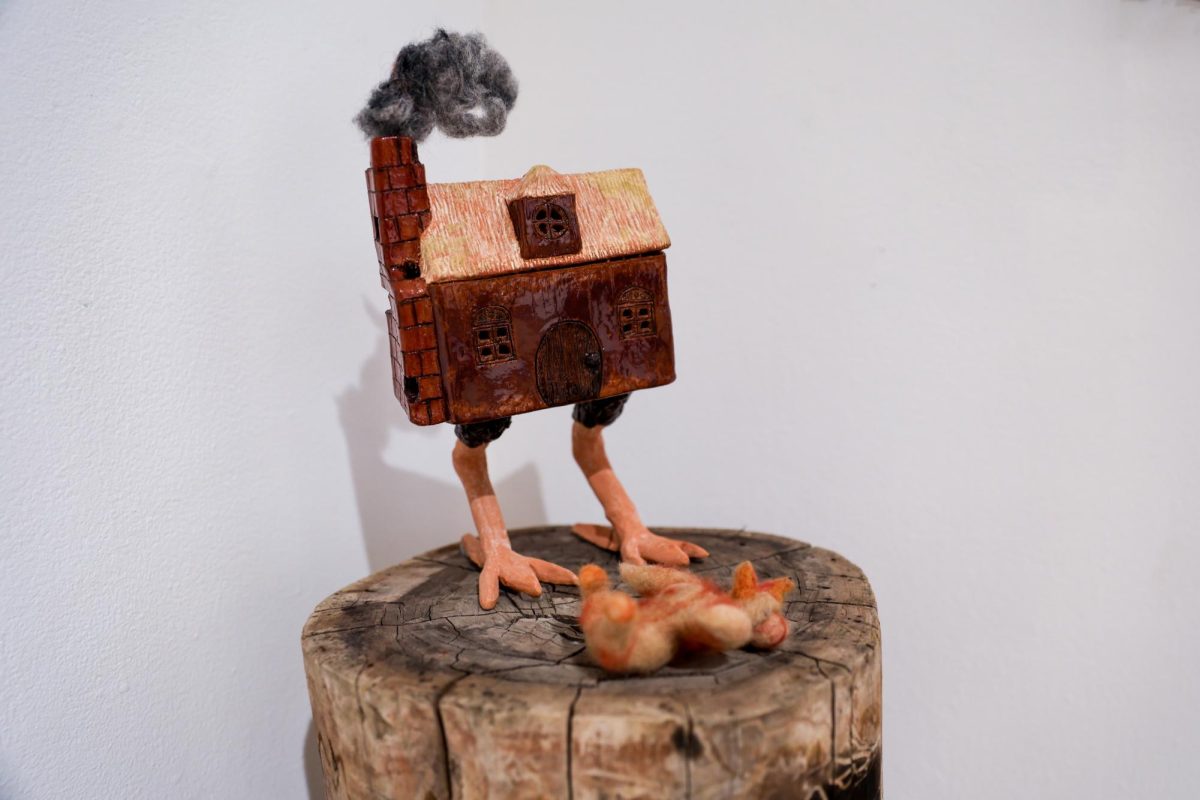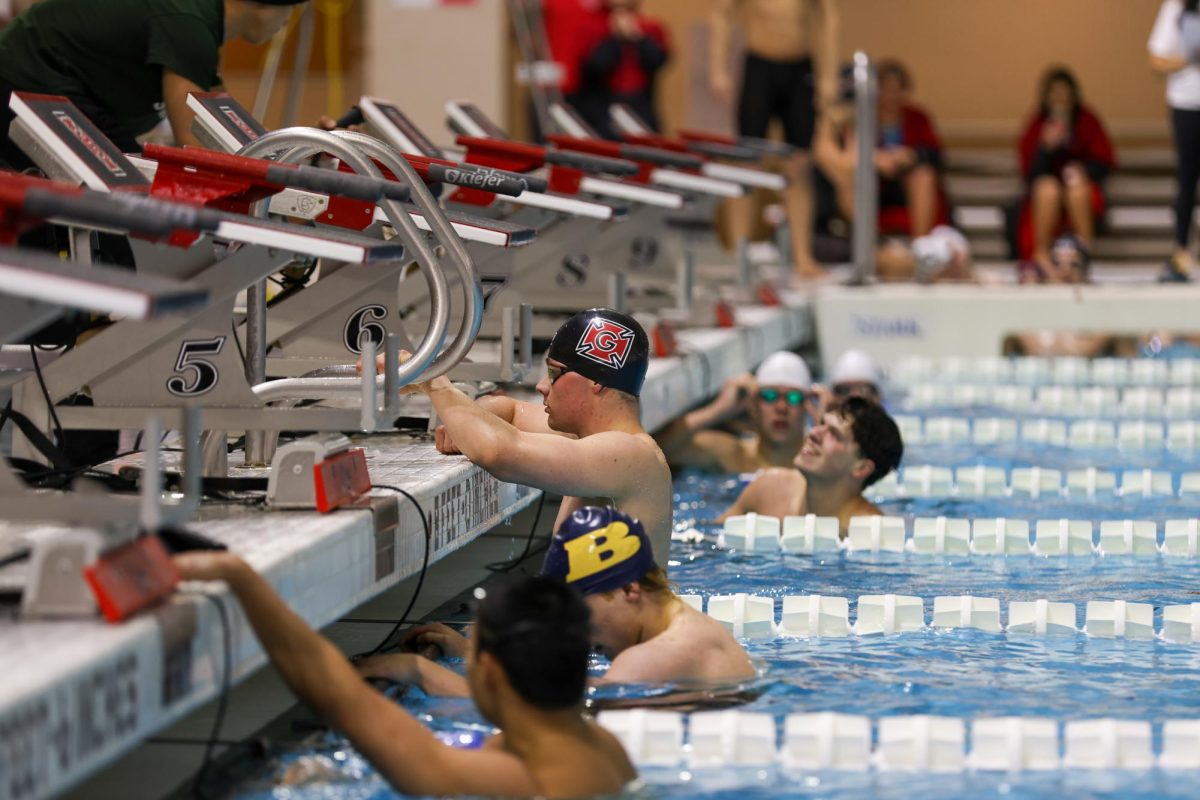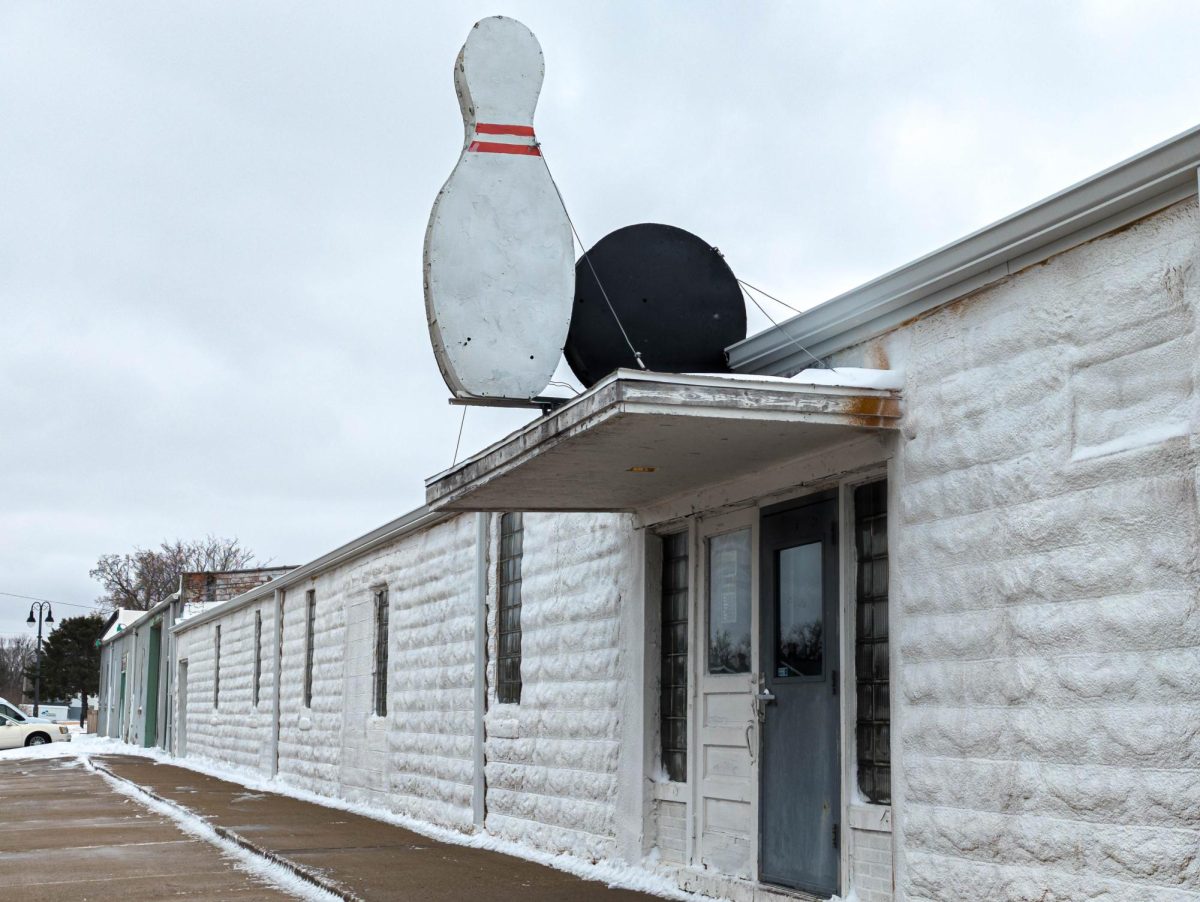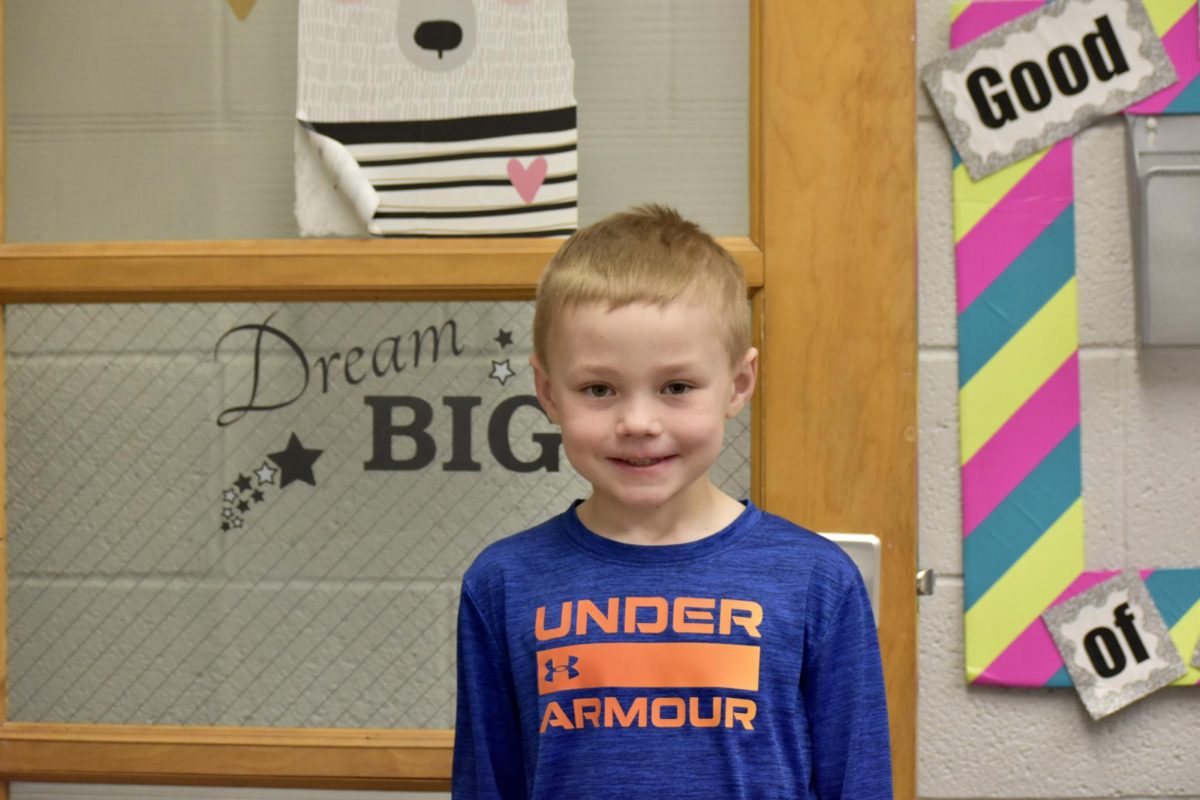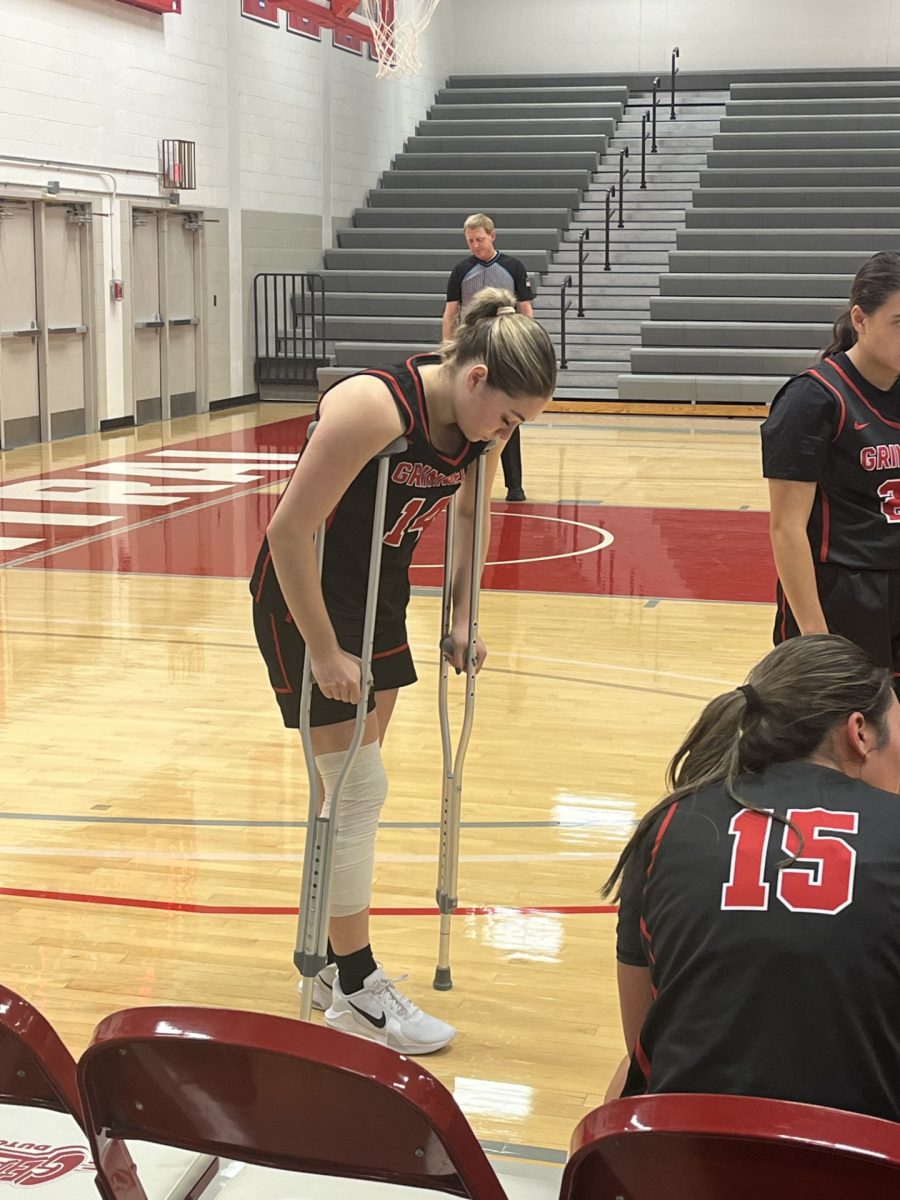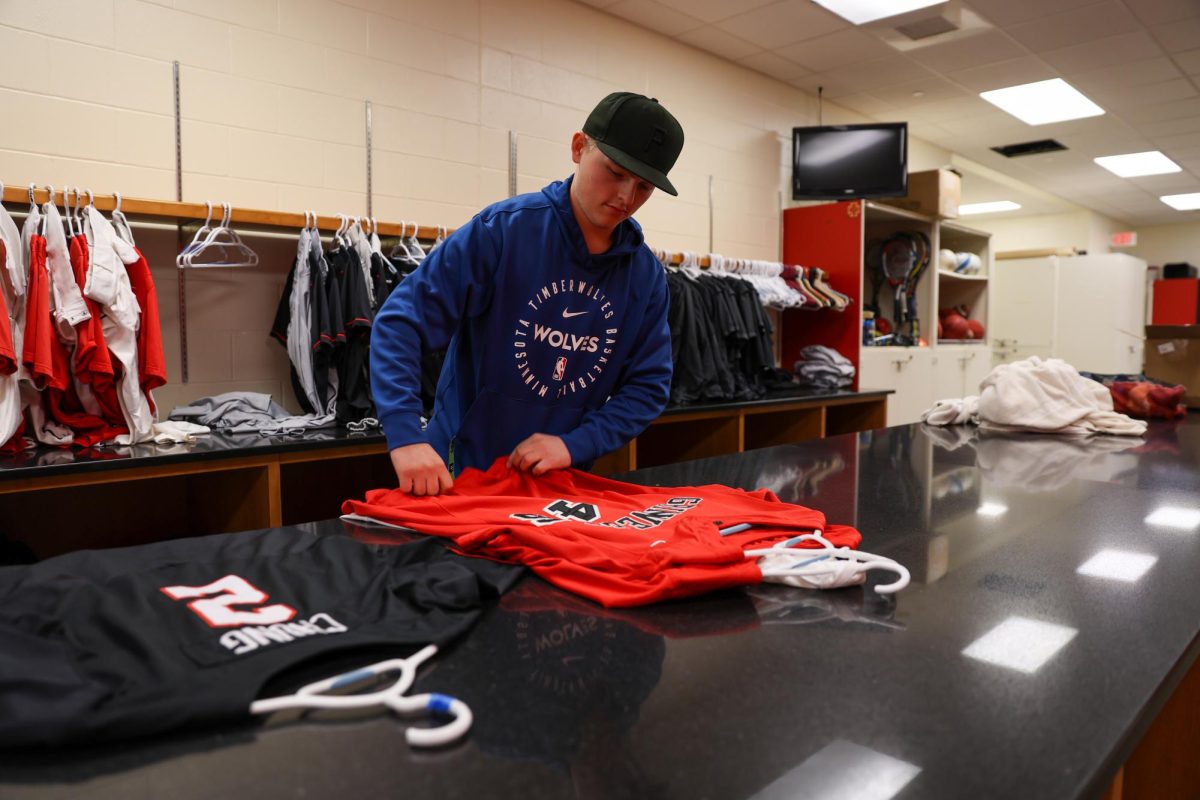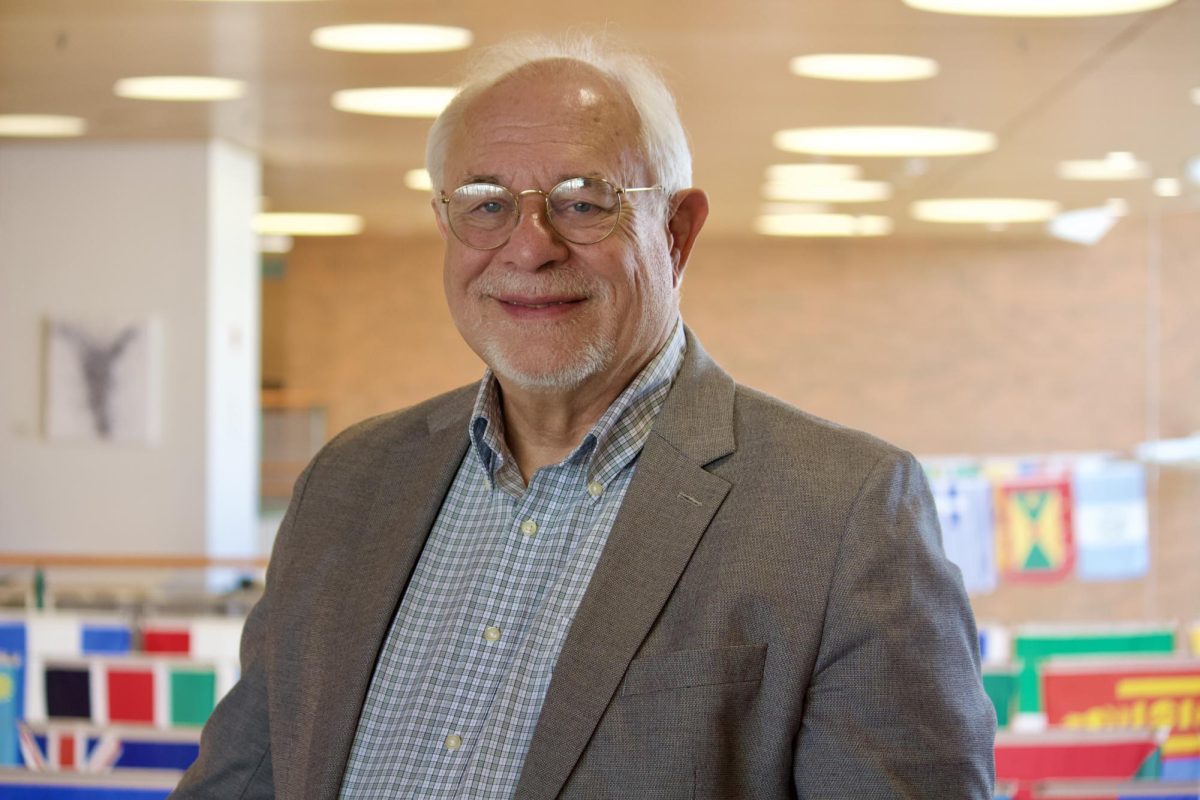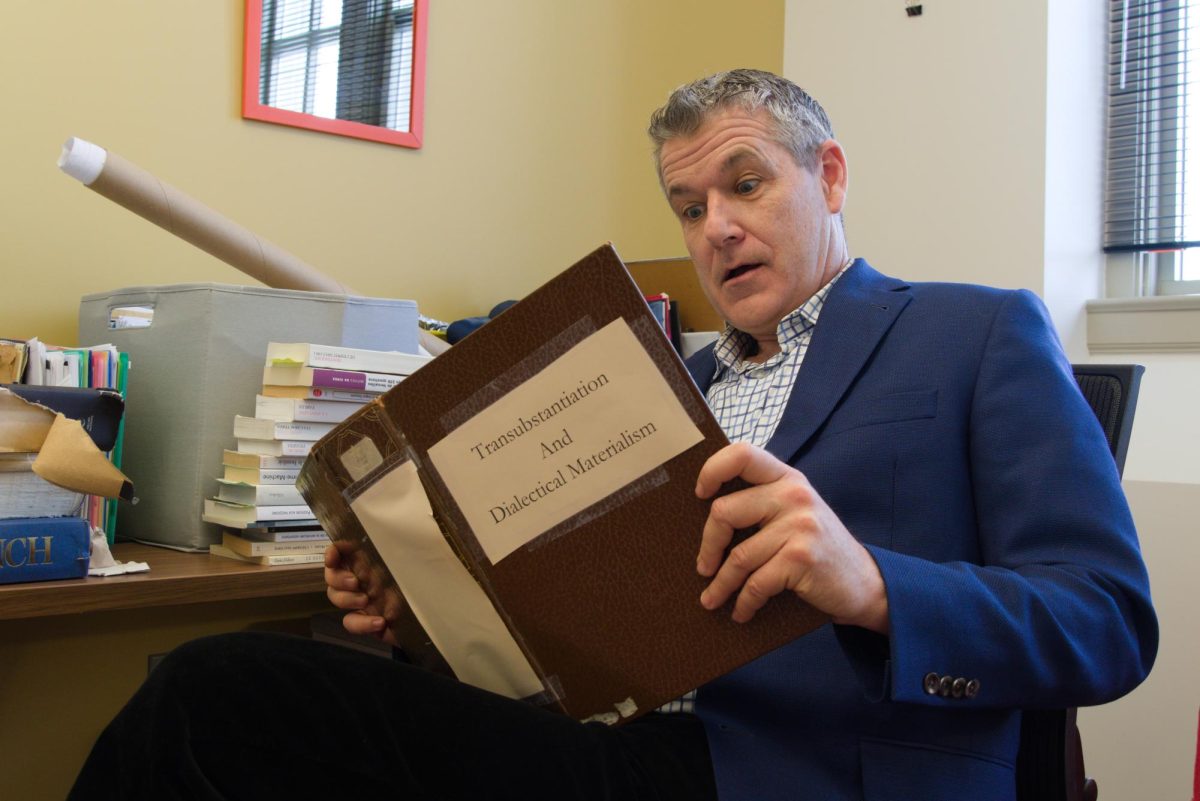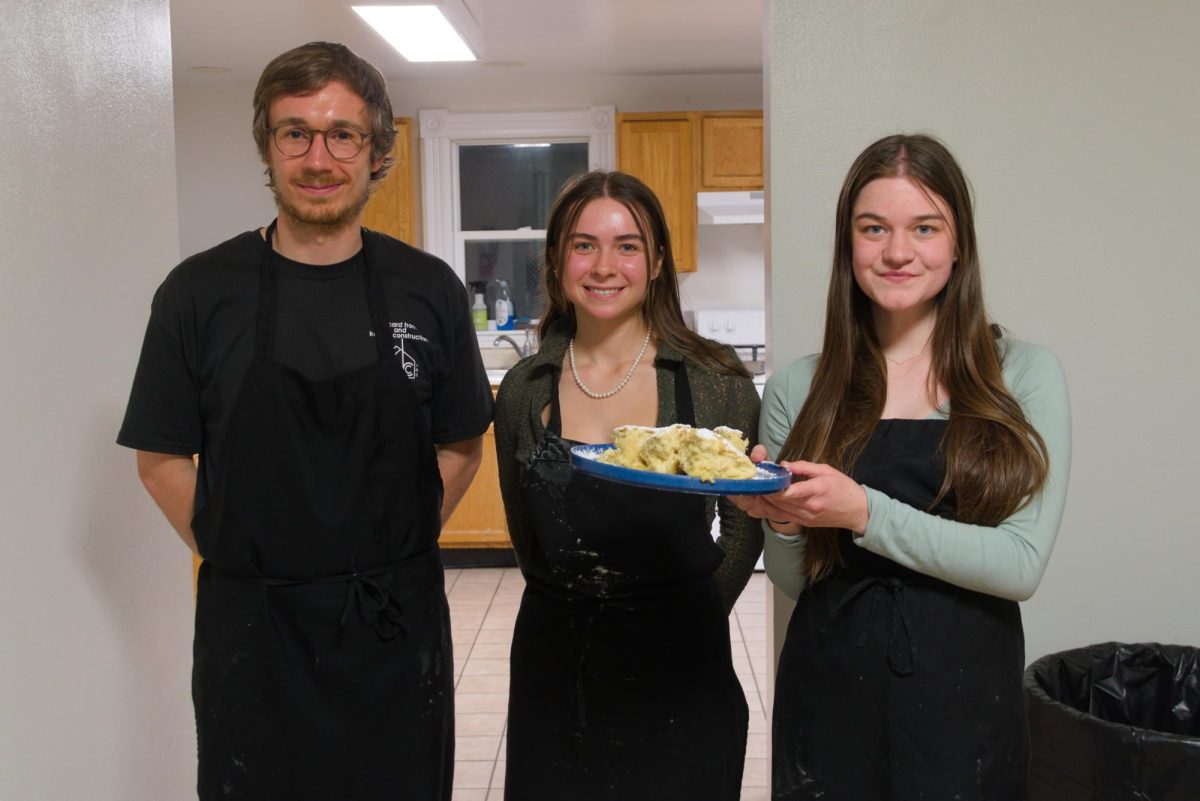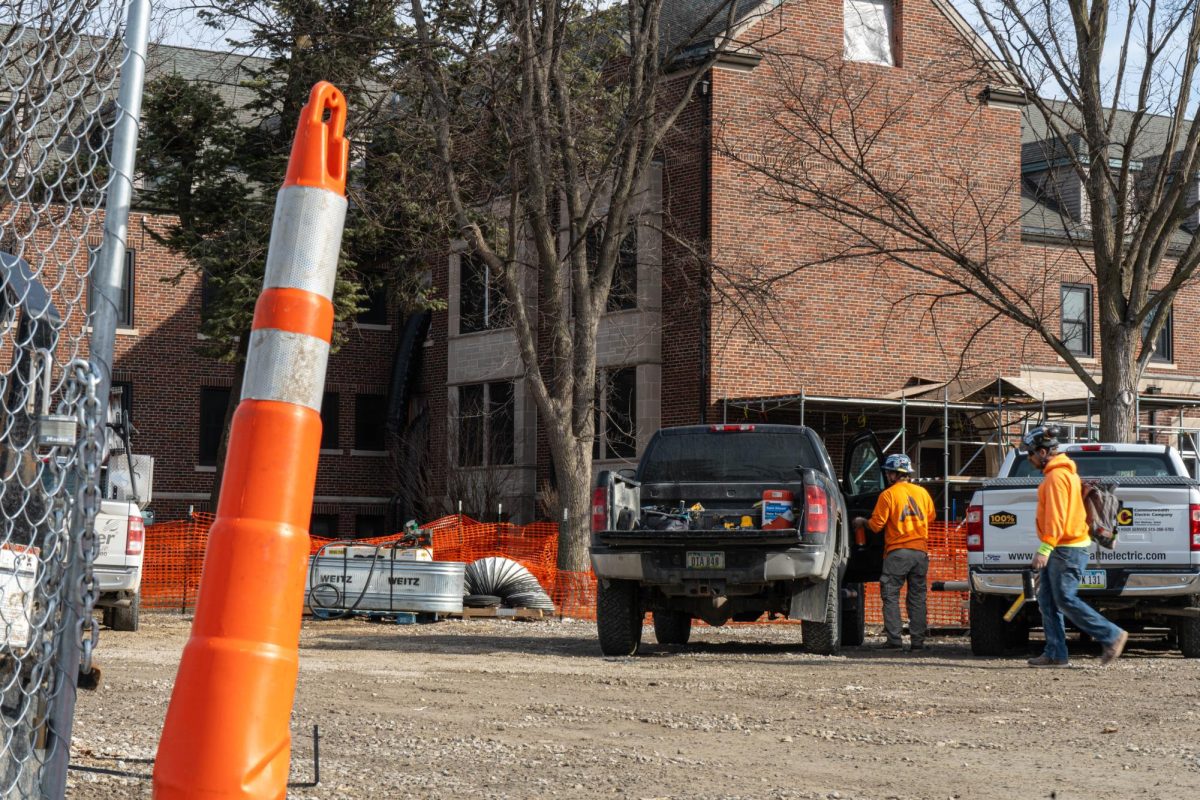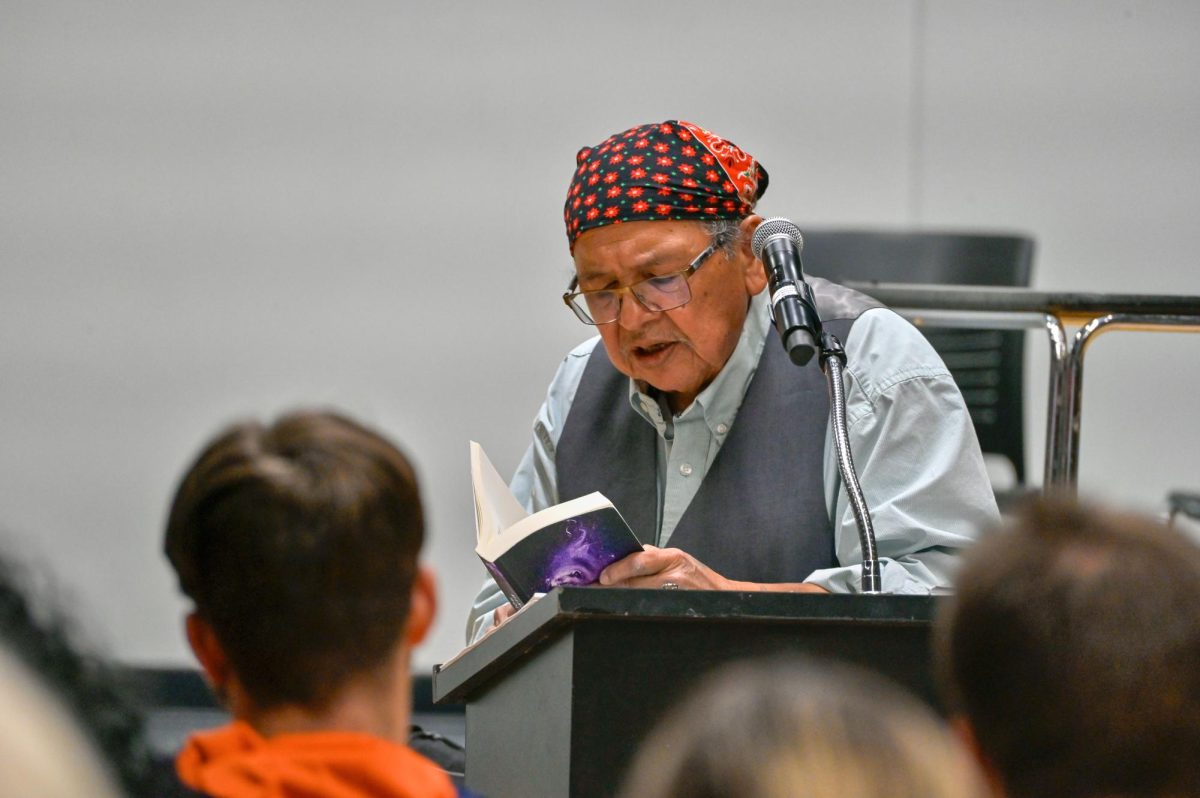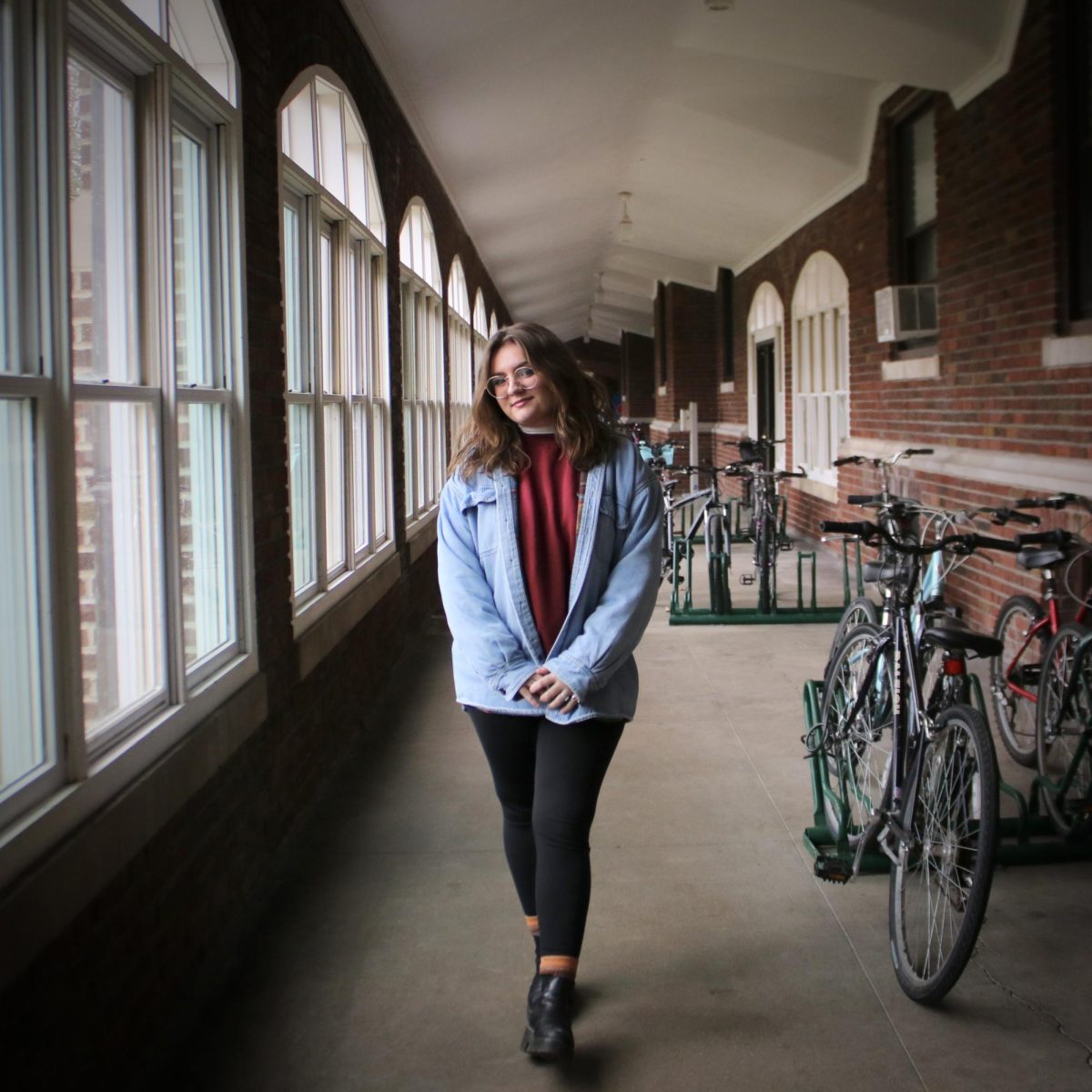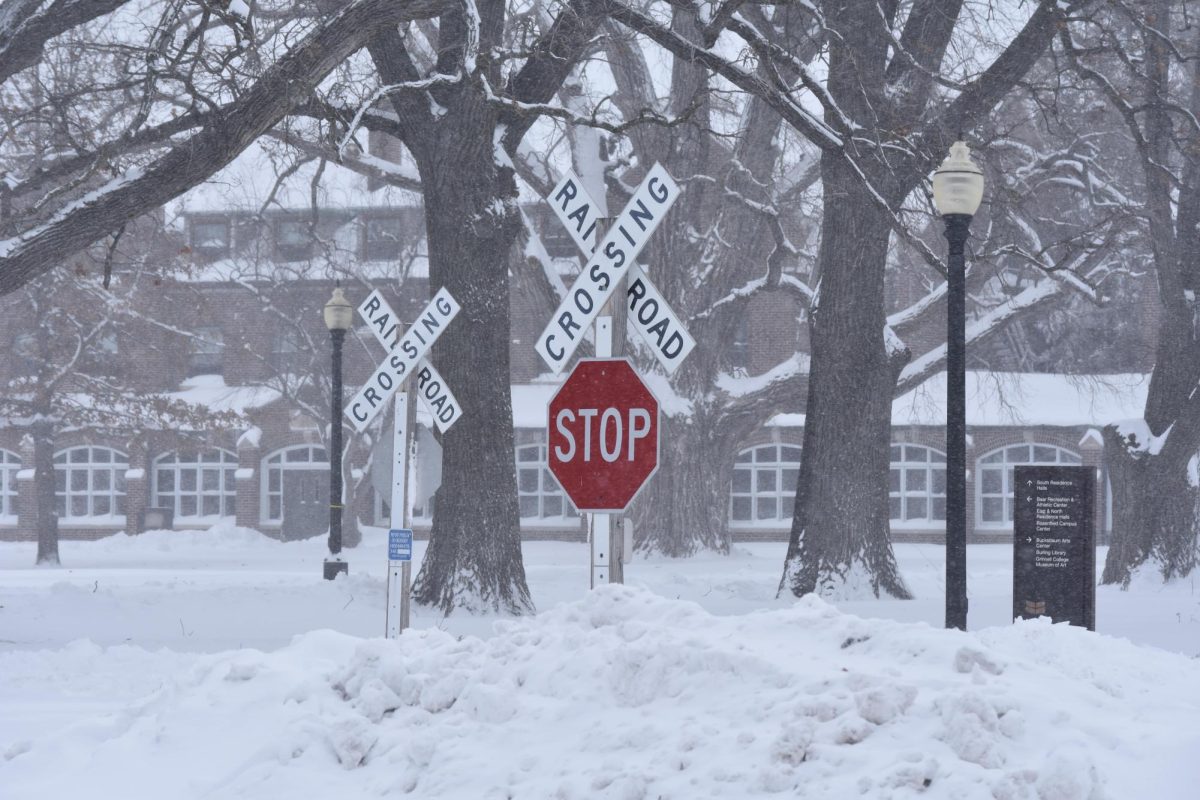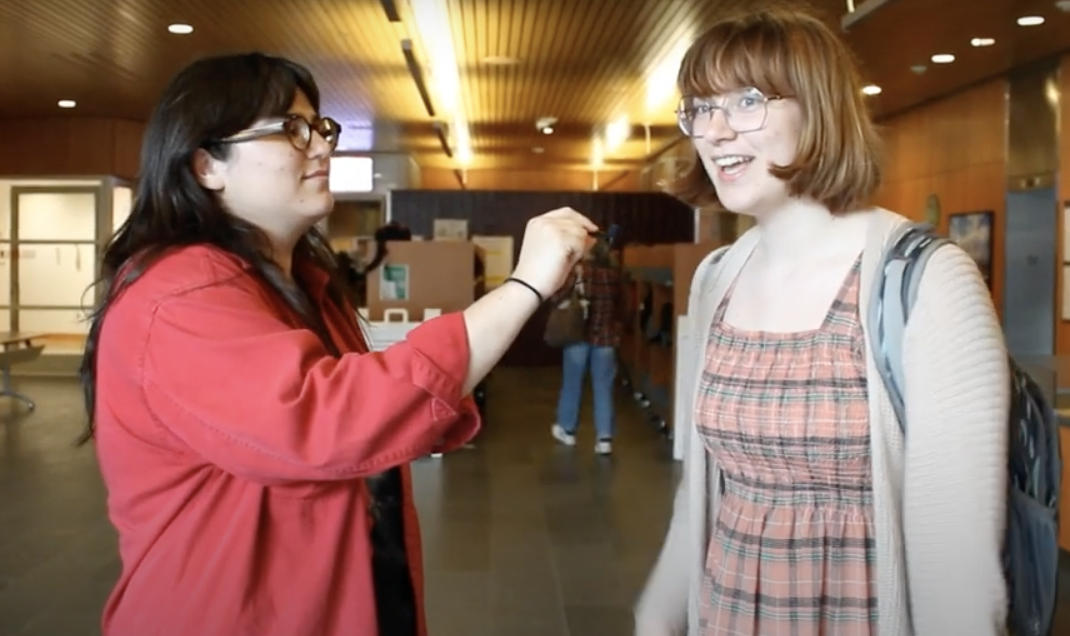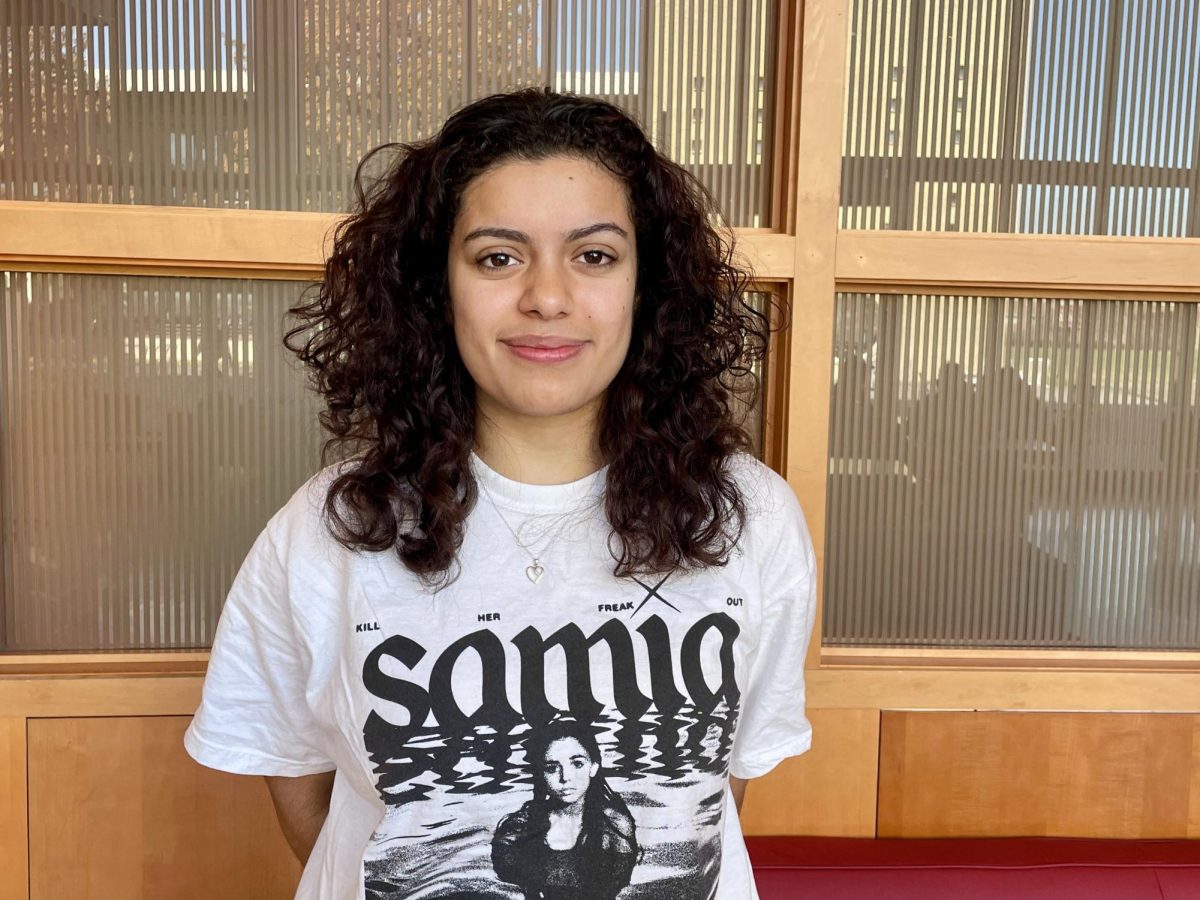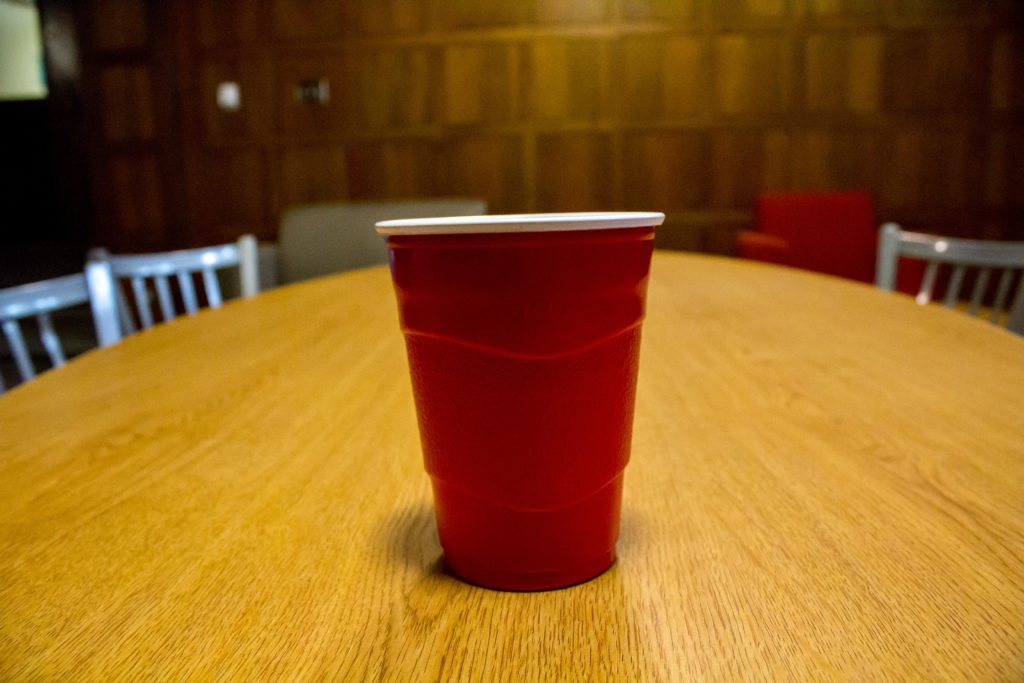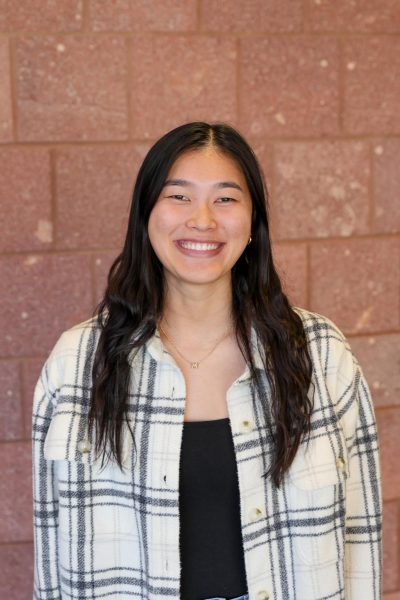On Tuesday, October 1st, CBS News hosted the first and only vice presidential debate ahead of November’s presidential election. Republican candidate J.D. Vance and Democratic candidate Tim Walz participated in the debate, moderated by Norah O’Donnell and Margaret Brennan. The S&B spoke to students who watched the VP debate to learn more about their reactions to it.
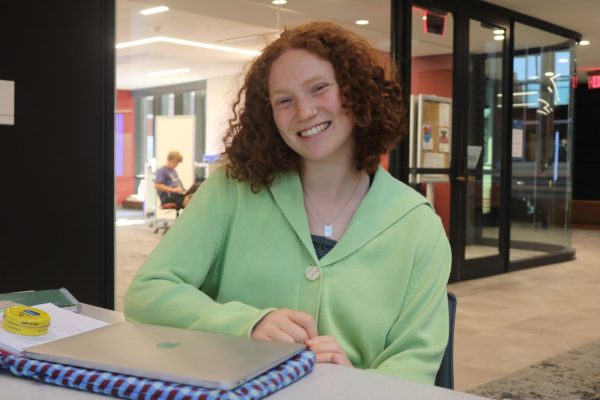
Maddie Hartog `25 is an anthropology major from New York City. She calls herself “politically progressive” and was particularly proud to say that she did not vote for Eric Adams in the last NYC mayoral election.
She said she will be voting early in the state of Iowa. “Voting in New York, you’re able to have a little bit more nuance, because it’s going to go blue regardless” she said. “I will be voting for Harris-Walz, and I’m so excited to vote for them. It’s going to be the best day of my life,” she said.
Hartog watched the debate in the company of other Grinnellians at the Campus Democrats watch party in the HSSC auditorium.
Hartog said that, before the debate, she was nervous about Walz’s performance, since she had heard that he is not a very practiced public speaker. “He did better than I expected,” she said. “Vance was also better than I expected.”
Hartog said she did not know much about Vance before the election and was impressed with his presentation. “And the truth is, there are moments where I would have said Vance won the debate just because he was eloquent and thoughtful in the way he was speaking, but that’s not going to change where my head is at. I don’t agree with so much of what he said — the content was not winning by any means.”
A key moment for Hartog was Vance’s answer on the housing crisis. “When Vance was proposing his ideas about repurposing federal land, I actually thought that was a really interesting idea, but then he concluded it with, ‘But we have to kick out all the illegal migrants,’” she said. “That ending to what he was saying — it just stuck with me because I’m like, ‘Damn, he just had to go there, didn’t he.’”
Hartog said she does not expect the debate to have much of an impact on the race.
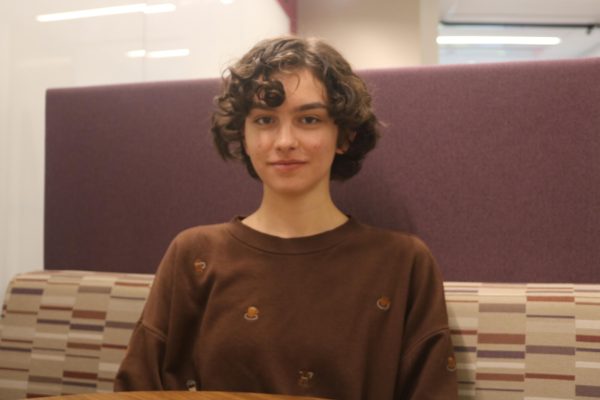
Kai Saoutis `26 is a biological chemistry major from Maryland. “I’m really far left, but I vote Democrat, just because that’s the closest I can ever get,” they said.
Similar to Hartog, Saoutis cited their decision to register to vote in Iowa instead of Maryland as a big factor on who they would vote for, suggesting that they would have voted for a Green Party candidate if they were voting in Maryland. “My vote matters more here, so I’d rather go with ‘My vote matters’ than ‘Make a statement with a vote that will probably mean nothing,’” they said. Saoutis said they will be voting for Kamala Harris in the 2024 election.
Saoutis watched the debate while they played –– and won –– debate bingo at an organized watch party hosted in Norris Hall.
Saoutis said they appreciated the more respectful tone between the candidates in comparison to recent debates. “I mean, on the one hand, it is kind of fun to see American politics be kind of like a reality TV show, but on the other hand, when it’s over, you’re like, ‘Goddamn, that really just happened.’ I really didn’t have that after this one, which I’m pleased about.” They said that they interpreted this as a strategy employed by each of the candidates in trying to appeal to moderate voters.
Saoutis said that, while they do not think about debates in terms of winners and losers, they think that Vance was better at staying on his message. “Walz went off on a few rambles a few times. I think he’s just not as accustomed to this type of thing,” they said. Saoutis said that both candidates had strong and weak moments. “He [Vance] did say some weird shit on and off.”
Saoutis said they are worried that Vance’s performance could “reassure some moderates that the right isn’t completely insane right now.” Despite that, they still think that Harris is the favorite to win the upcoming election. “I think enough people are kind of pissed off right now. I mean, I know a lot of people who don’t want a repeat of what happened in 2016 and we all know now to go vote after 2016 especially. So yeah, I’d say Harris, but that is also wishful thinking right now, for the lesser of two bad choices.”
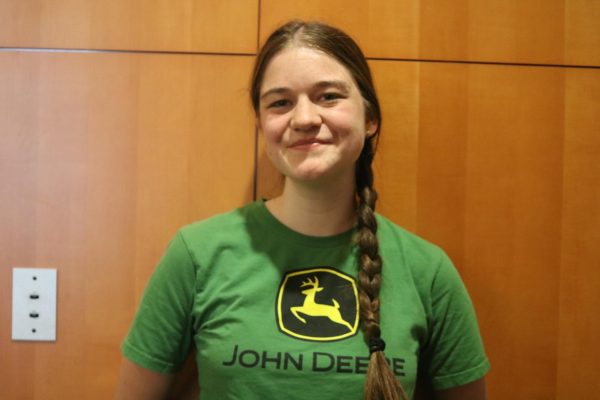
Jane Hoffman `25 is a political science major from California. She is involved with Campus Democrats, and she is a decided Harris voter.
Hoffman said that the VP debate provided an opportunity to see both candidates in a new context. “I hadn’t really seen Tim Walz speak more than in news clips or rallies, so it was interesting to hear him come out and talk about what the policy agenda of a Harris administration that he would be a part of would be,” she said. “And then also, honestly, I feel like hearing JD Vance discuss what his campaign’s platform looked like was the first time that I had heard specific policies enumerated.”
She said that she was rooting for Walz, and though he seemed nervous at the beginning, he settled in nicely. “I feel like he really gained strength throughout the debate and the way he used anecdotes was really powerful. I learned more about Minnesota’s governance system during the debate,” she said.
In terms of winners or losers, Hoffman said that she thinks it was a tie. “I feel like they both performed. They both projected confidence,” she said. “I think Walz enumerated more specific policies, and in my eyes, that’s key to a debate, but I also know that in the American election, debates are so much about projections, and image and confidence. And I feel like Vance came across as more of an adult in the room than Trump did when he was in his debate with Harris, so I could see the case being made for it being a net positive for the Trump campaign.”
Hoffman said that she doesn’t think this will have much impact on the election. She also noted how many watch parties and events she knew about happening on campus. “It seems that the student body is really engaged, which I’m happy to see” said Hoffman.
